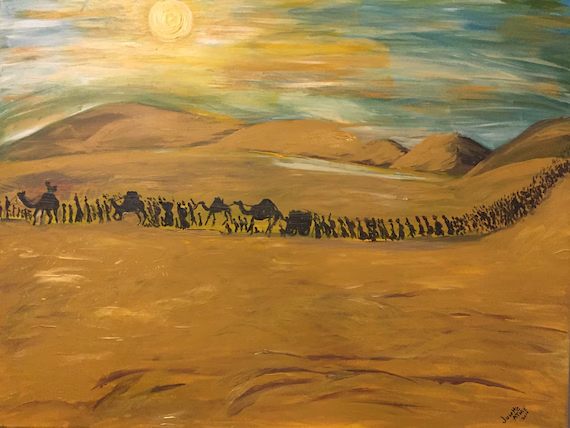Jesus in the Temple
Every year. Mary and Joseph went to Jerusalem to celebrate the Feast of the Passover with many other Jews.
It reminded them of the time, all those years ago, when Moses, with the help of God. Had freed the Hebrew people from slavery in Egypt and led them to the land God had promised them.
When Jesus was twelve, he went with them to Jerusalem to celebrate the Passover as usual. After the festival was over. Mary and Joseph joined their friends for the journey back to Nazareth.
They thought Jesus was walking with the other boys, and it wasn't until the evening that they realized he was missing. They asked everyone if they knew where Jesus was, but no one had seen him.
Early the next morning. Mary and Joseph hurried back to Jerusalem, desperate with worry. For three days, they anxiously searched the city streets for Jesus, but couldn't find him.
At last, they saw him sitting in the Temple with the Temple teachers. Listening to them, and asking them questions.
The teachers were amazed that Jesus, who was only twelve, understood so much of what they told him, and were astonished by the questions he asked. Mary and Joseph were very surprised to find him there.
'Why did you do this to us? Mary asked Jesus. 'We've been so worried about you. We've searched everywhere. We thought we'd never find you..
Jesus looked at his mother. 'I didn't mean to cause you so much trouble, he said.
'Didn't you know I would be here, in my Father's house?
He went back to Nazereth with them, but Mary kept remembering all that happened in Jerusalem.
Jesus grew up to be a wise and strong young man who loved and obeyed his parents and God.












Comments
Post a Comment